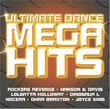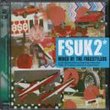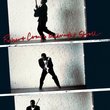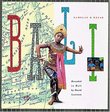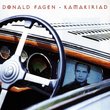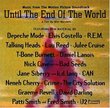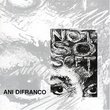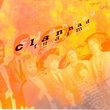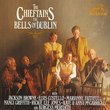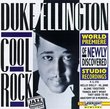| All Artists: Miles Davis Title: Live at the Fillmore East (March 7, 1970): It's About That Time Members Wishing: 4 Total Copies: 0 Label: Sony Original Release Date: 1/1/1970 Re-Release Date: 8/21/2001 Album Type: Original recording remastered Genres: Jazz, Pop, R&B Styles: Jazz Fusion, Funk Number of Discs: 2 SwapaCD Credits: 2 UPC: 696998519121 |
Search - Miles Davis :: Live at the Fillmore East (March 7, 1970): It's About That Time
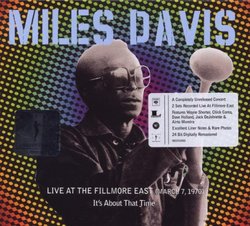 | Miles Davis Live at the Fillmore East (March 7, 1970): It's About That Time Genres: Jazz, Pop, R&B
Miles Davis took the stage of New York's Fillmore East with five other players on March 7, 1970. Leaning heavily on the soon-to-be-released Bitches Brew and looking back no further than 1962's "Masqualero," they rumbled, s... more » |
Larger Image |
CD DetailsSynopsis
Amazon.com Miles Davis took the stage of New York's Fillmore East with five other players on March 7, 1970. Leaning heavily on the soon-to-be-released Bitches Brew and looking back no further than 1962's "Masqualero," they rumbled, squawled, and stomped through two sets that might have surprised even fans of Davis's new rock-influenced sound. At times edgier than even the challenging Brew, the music was nonstop, polyrhythmic, and crashing while remaining groove-oriented. With Miles blowing one aggressive solo after another, saxophonist Wayne Shorter and drummer Jack DeJohnette rise to the moment while providing reminders of the angular sound of the '60s trio. While "Bitches Brew" itself appears in a drastically shortened but still relatively hushed treatment, the first of two versions of "It's About That Time" breaks away from In a Silent Way's midtempo meditation into full-tilt tumult. These 90 minutes capture Miles headed in the direction of Jack Johnson, stopping to give the rock audience a glimpse of himself working at another peak. --Rickey Wright Similar CDs
Similarly Requested CDs
|
CD ReviewsShorter is better (Wayne Shorter, that is) G B | Connecticut | 10/05/2001 (5 out of 5 stars) "With this release, there are now three official documents of Miles Davis at the Fillmores: March 1970 (this one), April 1970 (Black Beauty, at the Fillmore West), and June 1970 (At Fillmore). The three albums all have a similar sound and repertoire -- electrified improvisation over rock grooves with a nice dose of free jazz. The main thing elevating It's About That Time above the other two is saxophonist Wayne Shorter, who would leave after this recording to be replaced on the April and June recordings by the inexperienced and ineffective Steve Grossman. Shorter is positively scary on some of the tracks here -- just listen to his torrential tenor saxophone blowing over the churning rhythm section on either take of "Directions". He dominates this music. I personally prefer the tenor sax over the soprano, and there's plenty of the former here as an added bonus. As for Miles: he blows some intense, screaming trumpet as on the other Fillmore discs, but gains additional inspiration from Shorter's presence. After all, the two had been playing together for over five years at this point. Percussionist Airto Moreira makes some irrelevant noise but you'll tune him out quickly. The rhythm section (Chick Corea, Dave Holland, Jack DeJohnette) is as explosive as always, whether setting up a funky groove on "Spanish Key" or freely improvising on "It's About That Time". Corea's distorted and processed electric piano provides a more than adequate replacement for the lack of guitar. The sound quality here isn't the best, but who cares with music this powerful? If you have either Black Beauty or At Fillmore and were wondering whether this is worth picking up, the answer is DEFINITELY YES. And if you don't, pick this one up anyway.(Despite being labelled the last gig with the "Lost Quintet", this set sounds different from the Summer and Fall '69 gigs featuring this group minus Airto. That music was jazzier and didn't have the distortion on Corea's electric piano. It also included some of the older pieces like Round Midnight and No Blues. Hopefully Columbia will release some of that great music one day.)" For those who like an ongoing challenge... J. Lund | SoCal, USA | 08/29/2001 (5 out of 5 stars) "While it doesn't surprise me, it never ceases to amaze me that most of Miles Davis' music never loses its sense of unpredictability, even as his musical vision gains in clarity among listeners with the passage of time. That is particularly true of this album, issued over three-decades after it was recorded. At times on these sets, Miles' "controlled freedom" approach to music seems on the verge of losing it entirely, with passages that sound more like avant-garde jazz than Fillmore-friendly jazz/rock. Nonetheless, a balance is maintained via DeJohnette's dynamic grooves, and Miles' trademark ability to pull chaos back into order with a single phrase on his horn. One minute you've got tumultuous interplay, the next you've got Miles playing brilliantly over irresistable yet complex backbeats. In comparison with the two other officially-released 1970 Fillmore albums, I give this CD the edge due to the outstanding recording quality & remastering, the presence of Wayne Shorter on reeds, and the lack of post-production cut-and-paste that marred AT FILLMORE. Miles is in remarkable form on all three recordings, playing mostly with a harder tone that moves confidently and flawlessly into the upper reaches of his horn (does anybody still speak of Davis as having inferior trumpet-playing technique--he sounds like he can do anything he wants with the horn here). Yet in the music's occasional quieter moments his softer, lyrical side is on fresh display." FINALLY! The "Lost Quintet" (plus one) at last. Ed Packer | Suffern, New York USA | 08/30/2001 (5 out of 5 stars) "I was a sophomore in college when Miles brought this band to play in our gym. I had never attended a "jazz" concert before, so imagine my surprise when these guys took the stage and began to BURN!! I'll admit that I didn't understand what I was hearing at the time, but the experience changed me forever.
In the ensuing years, I have been to hundreds of jazz shows, and have amassed a huge collection of jazz recordings. However, my memory of the "Lost Qintet" in the winter of 1970 has always haunted me. Now, at last, a recording of this group at the Fillmore East has enabled me to relive those first moments when Miles, Dave, Jack, Chick and Wayne opened my ears (and mind)to the endless possibilities of music. This is a great recording, the quality is there, the energy is almost unbearably intense. A must for Miles fans. In my opinion, his greatest band ever!!" |

 Track Listings (4) - Disc #1
Track Listings (4) - Disc #1

